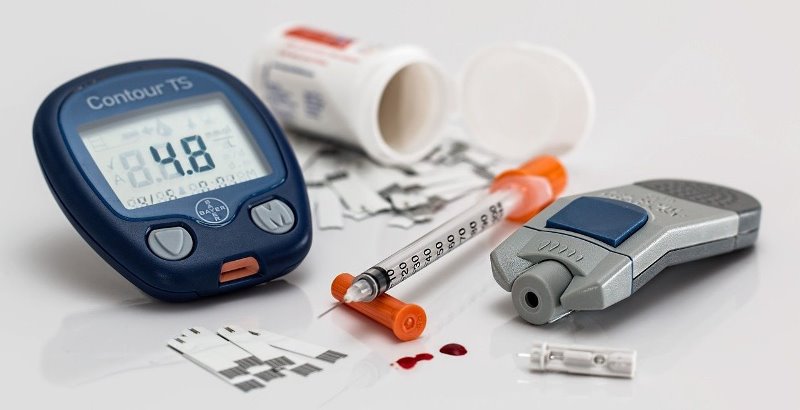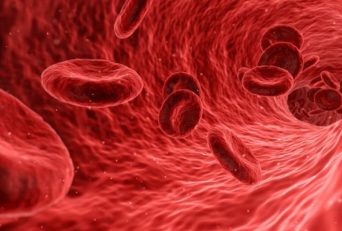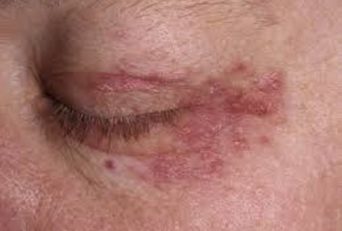Type 2 diabetes is a disease that affects how the body takes up and utilizes insulin. The function of insulin is to mop up glucose in the blood and get it to the cells, where it helps the body generate energy—type 2 diabetes results when the cells don’t respond to the action of insulin. The body may also struggle to produce adequate insulin in the advanced stage of Type 2 diabetes.
Since the body can’t effectively access glucose for energy production, it turns to other energy sources in the muscles, tissues, and organs. Type 2 diabetes is often known as adult-onset diabetes, but it also manifests in adolescents and children. An estimated 462 million people globally have Type 2 diabetes.
Other types of diabetes include Type 1 diabetes, gestational diabetes, monogenic diabetes, and cystic fibrosis-related diabetes.
Symptoms of Type 2 diabetes include lethargy, fatigue, constant hunger, excessive thirst, frequent urination, blurred vision, dry mouth, and itchy skin.
Treatment of Type 2 diabetes involves medications including Metformin, sulfonylureas, meglitinides, thiazolidinediones, and insulin. Other treatments include lifestyle changes, dietary modifications, and the use of herbs.
Table of Contents
Natural Remedies for Type 2 Diabetes
Natural remedies for treating Type 2 diabetes include herbs, lifestyle modification, and alternative therapies.
Herbs to Treat Type 2 Diabetes
Patients should speak with a doctor before commencing any herbal treatment for Type 2 diabetes. Herbs may interact adversely with diabetes medications, so it’s vital to be aware of potential interactions before using any herb.
The following herbs may be helpful in the treatment of Type 2 diabetes:
Ginger
The ginger plant has been used for its anti-inflammatory and digestive qualities for several millennia. Existing research indicates ginger may also reduce the amount of sugar in the blood. Ginger is often taken by brewing as a tea, drinking ginger ale, adding the root or powder to food, and taking ginger supplements.
Aloe Vera
Aloe vera is one of the most common plants utilized for therapeutic purposes. The beauty and skincare industry has used this plant for many years. Type 2 diabetes patients may also find this plant helpful in managing their symptoms.
Studies show that the plant’s antioxidant properties might protect and heal pancreatic beta cells that produce insulin. Patients may use this plant by taking aloe vera capsules or mixing the juiced pulp with a smoothie or beverage.
Bitter Melon
Bitter melon has been used for its medicinal qualities in Chinese traditional medicine for centuries. It’s used for treating asthma, skin problems, and stomach conditions. Research shows that Type 2 diabetes symptoms may be alleviated by taking bitter melon in several forms.
Bitter melon may be taken as juice, seeds, blended pulp, or as supplements. There’s evidence that taking the herb in any of these forms can lower blood glucose levels.
Fenugreek
Fenugreek seeds may be able to reduce blood sugar levels and slow the progression of Type 2 diabetes. Research shows that the seeds can stimulate insulin production and lower blood cholesterol levels. Fenugreek seeds may be taken by grinding them to a powder, including them in a meal, mixing with warm water, or taking fenugreek supplements.
Cinnamon
Cinnamon is a common component of sweets and baked foods. Its sweet taste makes it widely used by diabetes patients. Some research shows a connection between cinnamon use and decreased fasting blood glucose, and increased insulin sensitivity. Cinnamon may be taken in teas, dishes, and supplements.
Lifestyle Modifications for Type 2 Diabetes
Weight Loss
There’s a strong link between obesity and Type 2 diabetes. Weight loss can be an effective lifestyle change, and it is not often tried as a treatment for diabetes. A sedentary lifestyle is a risk factor for diabetes. An active lifestyle combined with deliberate weight-loss strategies can help to reduce blood sugar levels significantly.
Patients should try to get at least 30 minutes of intense physical activity up to five times a week. Weight loss supplements and plant extract may also be used by Type 2 diabetes patients who need to lose weight. Many supplements are unregulated, so it’s vital to speak to a doctor before using any weight loss supplement.
Intermittent fasting – the practice of restricting food intake to a specific time, may also help diabetes patients lose weight.
While intermittent fasting may help reduce glucose levels, significant adjustments to eating patterns may cause harmful swings in blood glucose levels. Intermittent fasting in diabetics must be under the supervision of a physician.
Healthy Diet
The kind of food a diabetes patient eats matters. Nothing is strictly forbidden, but patients must be wary of their food portions. A patient should eat just enough to avoid spikes in their blood sugar levels. They should avoid high fat and sugar foods. Meals should primarily consist of whole grains, vegetables, fruits, beans, and lentils.
Alcohol consumption may also increase blood sugar levels. Diabetes patients should limit their alcohol consumption to one to two glasses daily. Smoking may increase patients’ risk of developing diabetes complications and make it harder for them to exercise.
Stress Reduction
Stressful situations cause the body to release stress hormones which increase blood pressure and blood sugar levels. Constant exposure to stress can lead to a persistent rise in blood sugar levels, increasing the risk of developing or exacerbating Type 2 diabetes.
Patients should avoid stressful situations as much as possible and consider engaging in stress reduction activities like meditation or yoga.
Complementary Therapy
Some complementary therapies have found some use in Type 2 diabetes management:
Aromatherapy
Aromatherapy is the use of essential oils in improving the state of the mind and body. The oils are used as inhalations or applied topically.
This practice doesn’t directly affect blood sugar levels, but it can help reduce stress, which lowers sugar levels. Aromatherapy also reduces the risk of infections, something with which diabetes patients may struggle.
Massage Therapy
Massage therapy helps improve the body’s blood flow which may prevent diabetes-related complications like neuropathy.
Complementary therapies aren’t backed by extensive scientific research; they should be used cautiously, preferably with a doctor’s approval.
Final Words
Type 2 diabetes is a widespread disease that affects over 450 million people globally. While it doesn’t have a magic cure or quick fix, the latest research has discovered that several medicinal herbs and supplements can help manage this medical condition, especially when combined with oral medication.
Note that regular exercise and diets rich in vegetables and fiber, plus stress reduction techniques, are trusted ways of managing this condition.
Seeing as the FDA doesn’t regulate herbs and supplements, you’ll need to be mindful of the natural remedy products you buy and ensure that they can deliver on promised results in areas like lowering blood sugar levels.
Don’t forget to inform your physician before starting any home or natural remedy to advise you on the correct dosage and if there will be a potential drug interaction.





